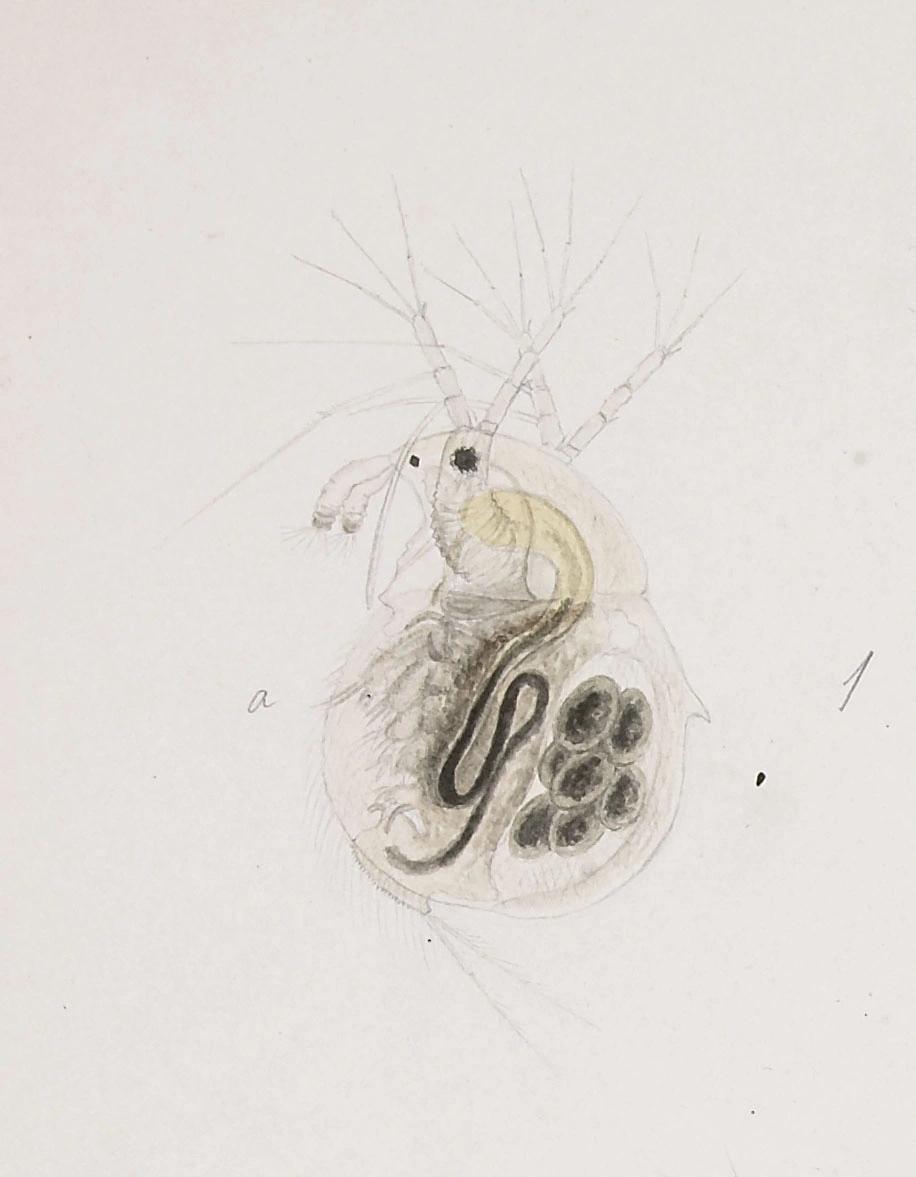Drepanothrix dentata
Drepanothrix dentata has a carapace which is especially short and squat, and the edge protrudes in a peculiar thorn-like protuberance approximately in the middle dorsally. It is most common in lakes and seems quite tolerant with respect to pH and conductivity.
Key characteristics
Drepanothrix dentata (female)
Drepanothrix dentata has a carapace which is especially short and squat, and appears almost perfectly round. The edge protrudes in a peculiar thorn-like protuberance approximately in the middle dorsally. Seen from the side, its head is rather large, and, as in Acantholeberis curvirostris, it has a conspicuous, strongly protruding rostrum ventrally. Its postabdomen is very small, and its shape shows a very distinct approximation to that characterizing the genus Lathonura. The abdominal claw is difficult to see without dissecting the animal. D. dentata has a grey to yellowish/greenish colour. In the summer it can be more or less hyaline.
Female: Length 0.3–0.9 mm
Male: Length 0.4–0.7 mm
Ecology and distribution
D. dentata is a littoral species found in 2,5 % of the localities, which has a scattered distribution throughout the country. It is found from sea level to 1138 m a.s.l. and is most common in lakes. D. dentata seems to be quite tolerant to pH (4.6–7.7) and found both in electrolyte poor and electrolyte rich water.
| Vitenskapelig navn | < 4,5 | 4,5 - 4,9 | 5,0 - 5,4 | 5,5 - 5,9 | 6,0 - 6,4 | 6,5 - 7,0 | 7,0 - 7,4 | > 7,5 |
|---|---|---|---|---|---|---|---|---|
| 0 | 2,6 | 1,1 | 4,8 | 3,4 | 2,6 | 4,4 | 0,8 |
| Vitenskapelig navn | < 1,0 | 1,0 - 1,4 | 1,5 - 1,9 | 2,0 - 2,9 | 3,0 - 3,9 | 4,0 - 4,9 | 5,0 - 6,9 | 7,0 - 9,9 | > 10,0 |
|---|---|---|---|---|---|---|---|---|---|
| 0,7 | 1,9 | 3,2 | 2 | 3,8 | 1,9 | 4,1 | 6,5 | 1,8 |
| Vitenskapelig navn | < 0,01 | 0,01 - 0,09 | 0,1 - 0,9 | 1,0 - 9,9 | 10,0 - 99 | 100 - 999 | > 1000 |
|---|---|---|---|---|---|---|---|
| 0 | 1 | 1,6 | 2,2 | 2,3 | 5,6 | 4,3 |
| Vitenskapelig navn | < 100 | 100-299 | 300-499 | 500-699 | 700-999 | >1000 |
|---|---|---|---|---|---|---|
| 3,9 | 2,7 | 1,4 | 1,7 | 2,5 | 0,7 |
